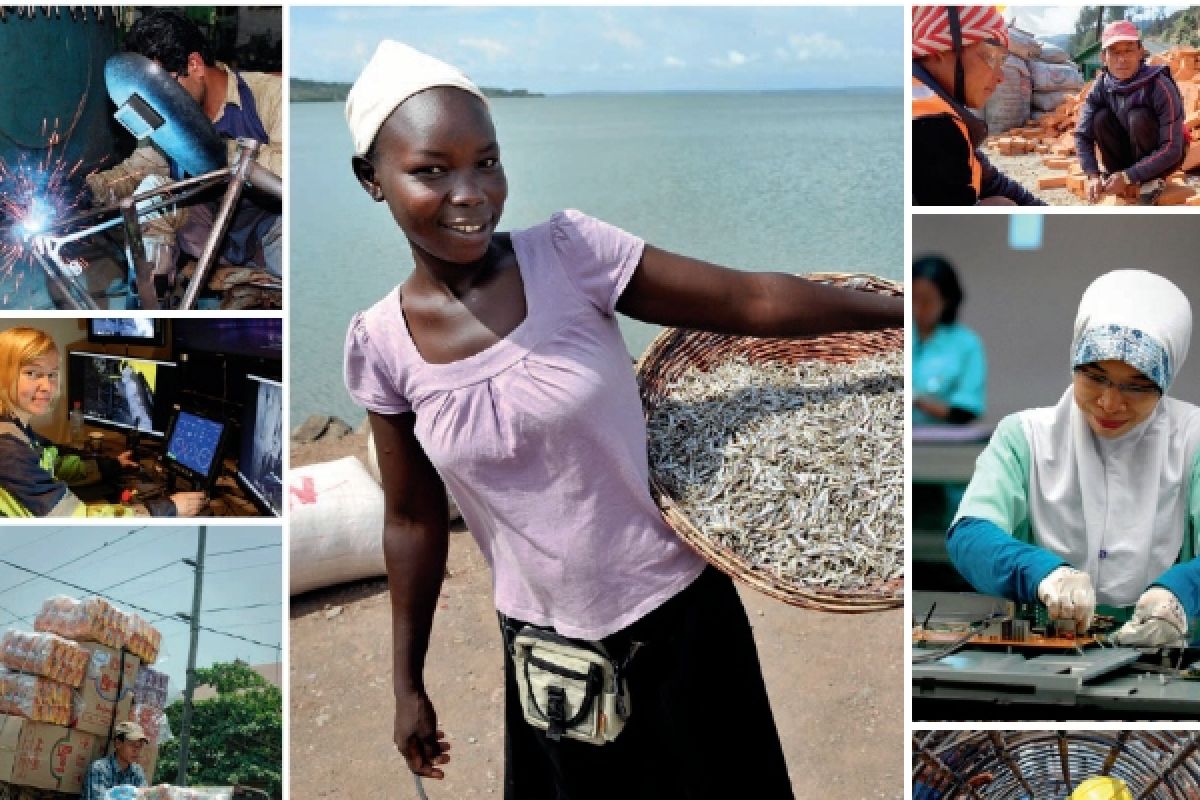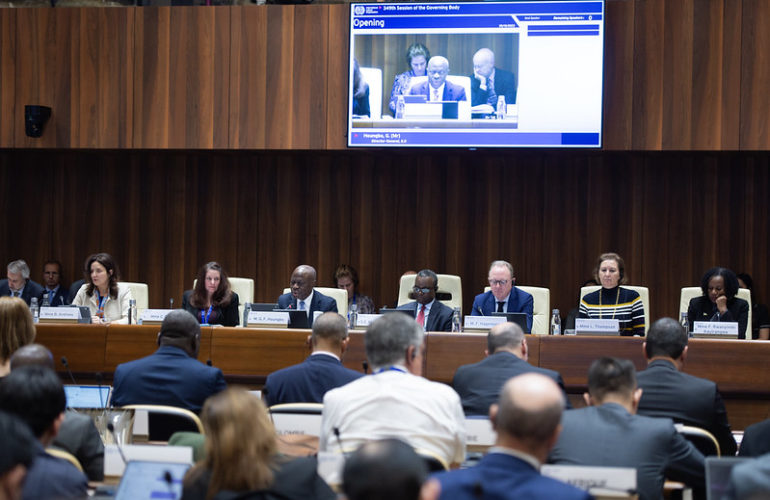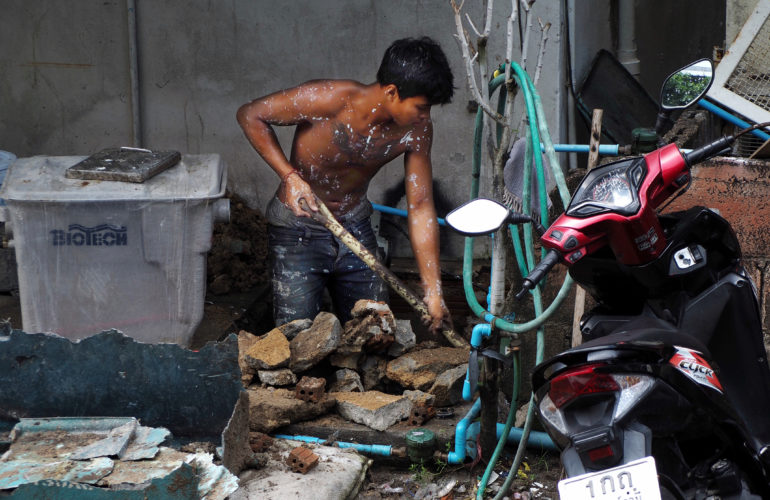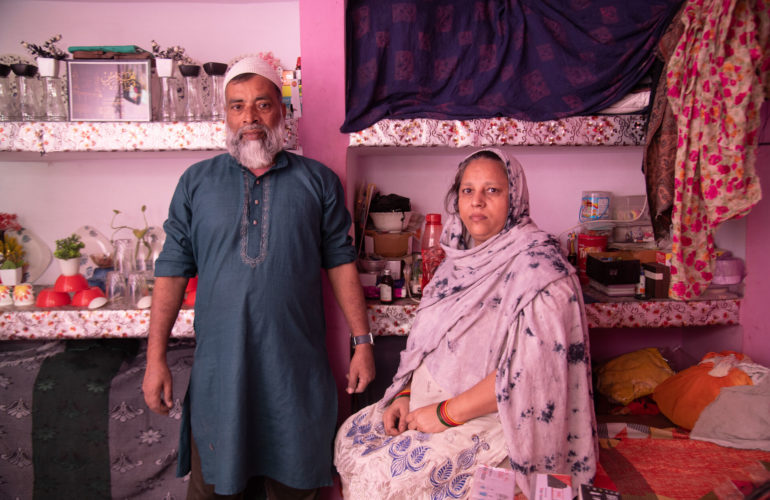How To Achieve a World of Work That Cares for Human Dignity and the Common Home
Catholic-inspired organizations seeking to implement Pope Francis’ Laudato Sì vision in the world of work recently concluded a three-year series of research projects. They presented their main findings and recommendations in a webinar event that focused on the notion that caring for others and the environment is central to all decent work.

On 15 December, The Future of Work: Labour After Laudato Sì project presented the conclusions and findings of three years of research during a webinar entitled “Care is Work, Work is Care.” The webinar introduced a comprehensive report of the same name.
The global project, coordinated by ICMC and involving a broad range of partners, provides Catholic and other faith-based organizations with examples of good practices and tools to respond to current and projected changes in the world of work while upholding the dignity of those involved. It aims to respond to the impact of the current environmental crisis and the introduction of technology and robotization through a person-centered approach that promotes decent work.
During the webinar, Cardinal Peter Turkson, President of the Vatican Dicastery for Promoting Integral Human Development, highlighted the topic’s current relevance in his introductory remarks.
“The world of work is deeply impacted by the negative consequences of the COVID-19 pandemic while, at the same time, it is expected to contribute to a caring response to all who are so deeply affected in every aspect of their lives. This paradoxical situation invites us to be mindful of the most vulnerable: those in precarious and informal working situations, the ‘essential workers’ contributing most intensively each day to the care of our societies, […] those ‘trapped’ in precarious situations […] whose jobs are at great risk or already have been lost,” he said.
Some people directly involved in the initiative underlined the main points of the report.
Ms. Louise Roblin, mission officer at the Paris-based Center for Research and Social Action (CERAS), explained how thinking of “work” as “care” broadens our view to include unpaid and informal work. She said that this conforms to Catholic teaching and tradition, which sees work as an inherent part of human life, inseparable from caring for others and the planet.
Professor Paul Dembinski, Director of the Geneva-based Observatoire de la Finance, reiterated the importance of considering work beyond salaried employment. He explained that half of all work is domestic work while another 30% is informal. “Economists focus on only 20% of work,” he said.
Dr. Peter Warrian from the University of Toronto discussed the influence of technology and robotization on the future of employment. He reported on his research in the automotive industry where, for the most part, robots are not replacing workers. Instead, they are “cobots” made to collaborate with humans. “The danger,” he said, “is when hospitals are asked to act like an Amazon warehouse” where technology is expected to replace human discernment and care.
Mr. Paolo Foglizzo, member of the editorial board of the Jesuit-run Italian journal Aggiornamenti Sociali, reflected that bringing about change, which is the ultimate goal of the initiative, requires the identification not only of what needs to be changed, but also of who is in charge of generating change and how. The report, he explained, suggests promoting transformative global communities as actors of change and social discernment as the method to come up with shared options.
The Future of Work: Labor Migrants in the 21st Century
A second panel, formed by experts who were not directly involved in the drafting of the report, focused on challenges that need to be taken up and possible future steps for the continuation of the initiative.
Professor Emilce Cuda from the Pontifical Catholic University of Argentina focused on work-related issues in the Latin American region. She stressed that workers’ representatives, along with governments and employers, should participate in decision-making processes, including those related to production methods. She also emphasized the importance of ensuring that everyone has access to common goods such as clean air, water, and natural resources.
Fr. Clete Kiley, Director for Migration Policy at the labor union, UNITE Here USA, explained how environmental degradation puts the health and lives of workers at risk. He gave the example of workers in the West of the United States affected by the pollution caused by the region’s large forest fires. He also shared how migrant workers in the U.S. are among the most vulnerable to the unemployment and loss of health coverage caused by COVID-19.
Fr. Charlie Chilufya, Director of the Jesuit Conference of Africa and Madagascar’s Justice and Ecology Office, described the traditional African concept of “Ubuntu” as an inspiration for organizing society and economy. Ubuntu, often translated as “I am because we are,” rests on the principle of interconnectedness. “Do not try to Westernize economy,” he said, describing the disastrous results of neoliberalism on the African continent.
Dr. Anna Biondi, Deputy Director of the International Labour Organization’s Bureau for Workers’ Activities, highlighted the false dichotomy that places protecting jobs and protecting workers in opposition to each other. She encouraged the audience not to limit their vision of work to employees, but to include all workers, regardless of their employment status. This, she explained, can reframe efforts for freedom of association, the fight against child and forced labor, inequality and discrimination.
In his concluding remarks, Archbishop Ivan Jurkovič, Permanent Representative of the Holy See to the UN and multilateral organizations in Geneva, expanded on how, in the era of COVID-19, these goals are more important than ever. “The pandemic has revealed the extent of the inequality in our world. As we look to the future, our work should be not towards recovery but towards transformation. We should deploy the most advanced technologies and best policy know-how to build public health and economic institutions that are not only resilient but also inclusive,” he said.
The Future of Work: Labour After Laudato Sì project was inspired by Pope Francis’ 2015 encyclical Laudato Sì, in which he proposes “an integrated approach to combating poverty, restoring dignity to the excluded, and at the same time protecting nature” (n. 139). The project has brought together Christian business associations, international movements, local communities, conferences of Catholic bishops, Jesuit social centers, universities, and organizations from other religious traditions. It also participated in the International Labour Organization’s Future of Work Initiative and based its objectives on the UN’s Sustainable Development Goals.
- Read the Care is Work, Work is Care report



